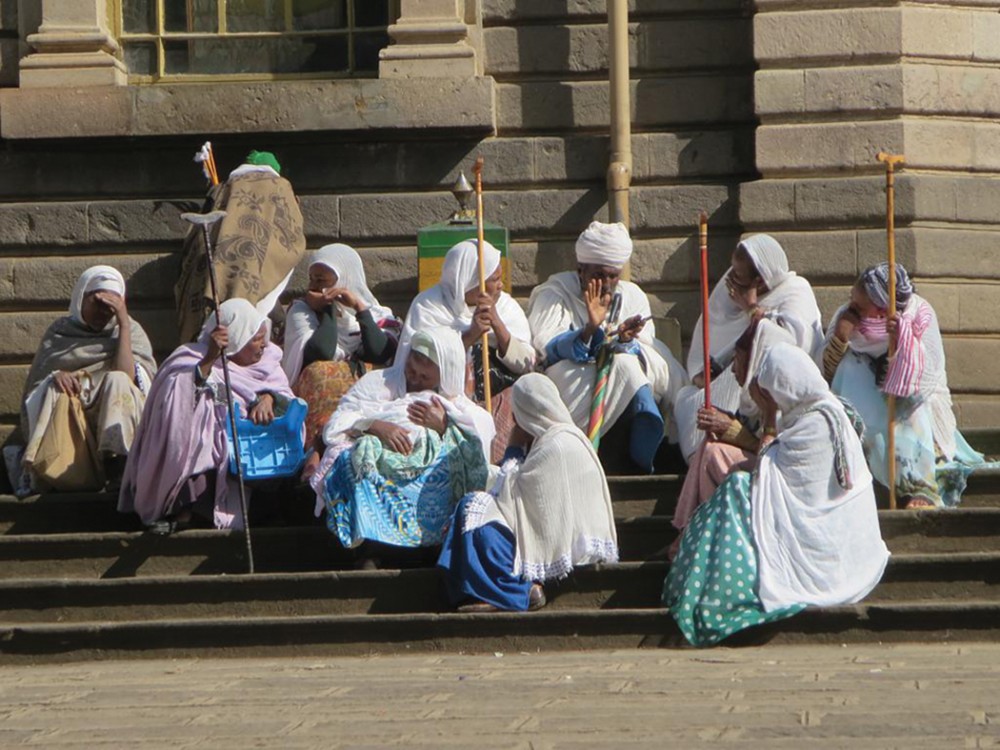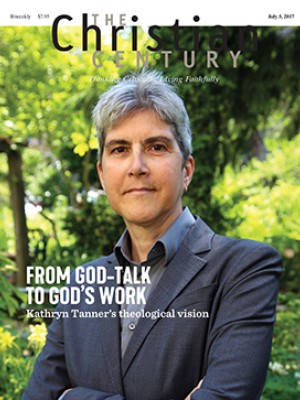The other Eastern churches
More than 60 million of the world’s Christians are members of churches that have been around since Chalcedon—and rejected it.

Most Americans know the basic Christian division between Protestants and Catholics, and they are at least aware of the Orthodox tradition of the faith, even if they might not be too clear about the exact differences separating them. But besides these three great Christian families there is the distinct (and numerous) group of Oriental Orthodox churches, which will be an increasingly visible part of the Western religious spectrum in years to come.
The Orthodox divisions date to fierce conflicts that raged when the Roman Empire was a superpower faced with the clear and present danger posed by Goths and Huns. Protestants, Catholics, and Orthodox all accept the authority of a series of four church councils that met between 325 and 451 to define Christian doctrine and belief, and in each case the decision was enforced by imperial authority. That sequence of councils culminated in 451 with the Council of Chalcedon, which proclaimed that Christ is both fully divine and fully human. The pro-Chalcedonian churches based in Rome and Constantinople evolved into what we would later call the Roman Catholic and Orthodox communions. The 16th-century Reformers accepted the Chalcedonian settlement, which was fundamental for Protestants, Catholic and Orthodox alike.
Read our latest issue or browse back issues.
The decisions made at each of the great councils left opponents angry and restive, but Chalcedon above all was radically divisive. Supporters of the Chalcedonian settlement complained that their opponents believed that Christ had just one divine nature, which meant that they were denying his humanity. The pro-Chalcedon forces condemned their enemies with the dismissive name Monophysites, from the Greek term for “one nature.” Chalcedon’s foes, however, thought that the council had taught an unthinkable separation between Christ’s human and divine natures, making him two beings, and two gods. Each side denied the Christian credentials of the other.
Chalcedon was widely rejected in those ancient Eastern churches that had the best claim to direct continuity from the apostolic age. In Egypt, Syria, and Armenia, hatred of Chalcedon sparked protests, riots, and even civil war. Dissident churches rejected the empire’s official position, and these anti-Chalcedonian bodies claimed the support of large majorities of the population. The divisions fatally weakened the Roman Empire in the East, making possible the Muslim conquests of the seventh century.
The dissident churches survived and flourished under Muslim rule. They remained in communion with each other, but not with the abhorred heretics of Rome and Constantinople. Together the anti-Chalcedonians are referred to as the Oriental Orthodox. Among the most prominent of these bodies is the Coptic (Egyptian) church, which profoundly influenced the emerging church of Ethiopia. The Ethiopian church still includes in its official title the anti-Chalcedonian term Tewahedo, or “one-ness.” Besides the Copts and Ethiopians, the Oriental Orthodox communion includes four other autocephalous (independent) churches, namely, the Syriac, Armenian, Eritrean, and the Malankara, the last of which is based in southern India.
Over time, all these churches suffered varying degrees of persecution, and many believers converted to Islam. Even so, the churches today count impressive numbers: 60 to 70 million members worldwide (the Ethiopians account for two-thirds of these).
Global migration has given the Oriental Orthodox a worldwide presence. Indian, Ethiopian, and North African Christians are all well represented in the Arab Gulf, where the Malankara church now has a megachurch-scale cathedral in Dubai. Millions of other Oriental Orthodox make their home in Europe, North America, and Australia, and their numbers there have swelled as religious tensions in Syria, and increasingly in Egypt, prompted out-migration.
Egypt and Ethiopia are among the main African sources of migration to the United States. Although the first Coptic church in the United States (in Jersey City) dates only from the late 1960s, the country now has at least 200 more. The Washington, D.C., area alone has perhaps a quarter of a million Ethiopians, and though not all are Oriental Orthodox, the ancient Tewahedo church has enough active faithful to support a thriving Washington diocese.
Although the Orientals still reject Chalcedon, differences between the various communions have faded dramatically over time. In their liturgical and devotional life, these churches still have an immense amount in common with the Orthodox. Even on key theological issues, tensions have diminished enormously. Over the past century, productive conversations between Chalcedonian and Oriental communions have shown how slight were the actual differences between the two sides and how misleading were the stereotypes each side once had of the other. No, the Orientals did not preach one simplistic divine nature, and the Westerners did not hold a bizarre doctrine of two gods. Much of the ancient disagreement was technical, semantic, and symbolic. Both sides are in fact truly (small o) orthodox on every point that matters. After a mere 1,500 years of conflict and dissension, mutual charity and respect have prevailed.
A version of this article appears in the July 5 print edition under the title “The other Eastern churches.”







